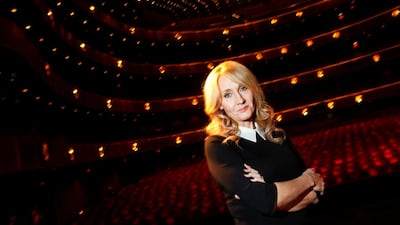JK Rowling is releasing a new fairy tale free of charge for children in lockdown to enjoy.
The Harry Potter author took to Twitter to announce that The Ickabog will be released chapter by chapter, online, every weekday between Tuesday, May 26 and Friday, July 10. There are also plans to release the story in other languages.
"I'll be posting a chapter (or two, or three) every weekday between 26th May and 10th July on The Ickabog website. We plan to publish some translations soon and will post further details on that website when they're available," Rowling wrote on her website.
The first two chapters of the book will be online at 6pm today, Tuesday, May 26, but the website is not yet live.
The author penned the new story while she was still writing Harry Potter, but has confirmed it is not Hogwarts-related. Not much is known about the plot of the fairy tale other than it is about truth and the abuse of power.
There's also a chance for children to get their artwork published. Rowling is calling on the imaginations of younger readers to help create illustrations for the book when it is published in print in November 2020. Full details will be available on the website.
Having stepped away from writing children's books, Rowling read the story to her own children when they were young, but never published it. Instead, she tucked it away in her attic where it has been for almost a decade.
Life under lockdown has inspired Rowling to release the story for other children to enjoy.
"A few weeks ago at dinner, I tentatively mooted the idea of getting The Ickabog down from the attic and publishing it for free, for children in lockdown. My now teenagers were touchingly enthusiastic, so downstairs came the very dusty box, and for the last few weeks, I've been immersed in a fictional world I thought I'd never enter again," details Rowling.
The story can be read aloud to younger children or can be given to older children to navigate alone.
"I think The Ickabog lends itself well to serialisation because it was written as a read-aloud book (unconsciously shaped, I think, by the way I read it to my own children), but it's suitable for seven to nine-year-olds to read to themselves," explains Rowling.


